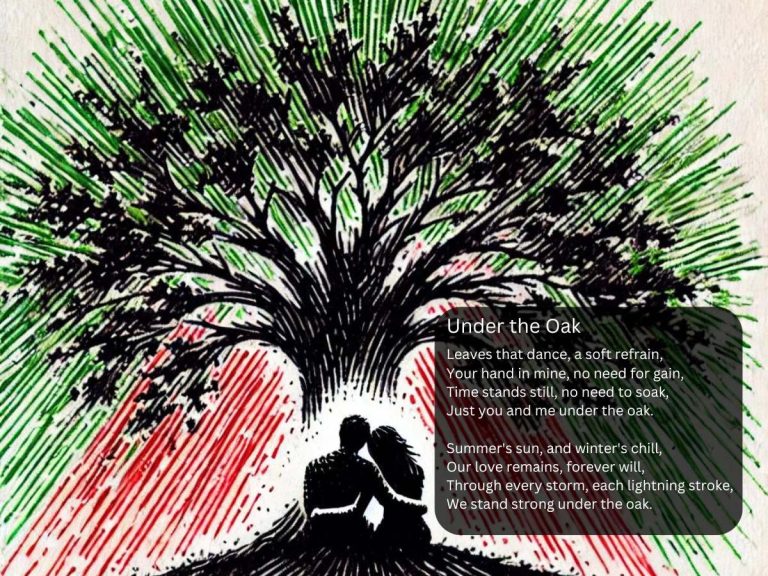Poems About War and Destruction
Table of Contents
Dawn After Desolation
Ashen skies, a silent plea,
War's breath, cold, unfree.
Fields once green, now scarred,
Dreams of peace, endlessly marred.
Rivers of steel, flow with dread,
Echoes of the fallen, whispers unsaid.
Shadows stretch, over lands torn,
Innocence lost, and hearts worn.
Fires rage, without a sound,
Hope's light, nowhere to be found.
Ruins speak of a destruction's tale,
Under the moon, so eerily pale.
Yet, amidst the desolation, a spark,
A glimmer of defiance, in the dark.
Rebuilding from the ashes, a new start,
War's end, where peace's journeys embark.
Silent battles, fought within,
Shadows of silence, growing thin.
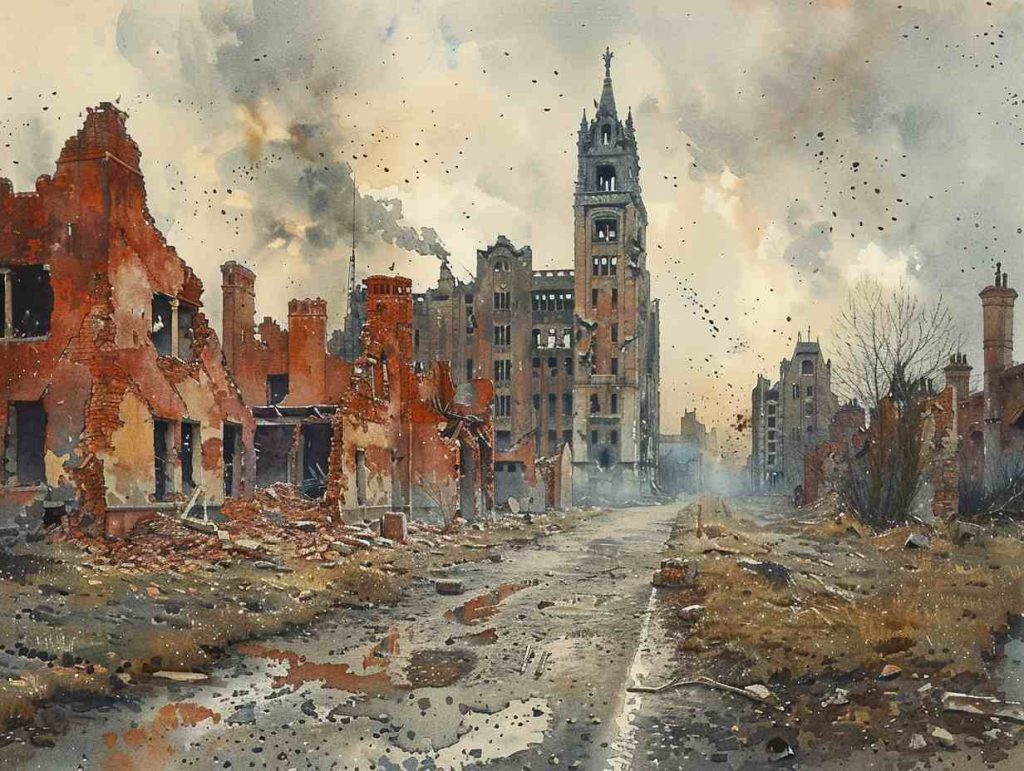
Meaning
This poem unearths the devastating impacts of war and destruction, portraying a landscape where peace is deeply missed and the remnants of conflict tell a haunting tale. However, it also hints at a resilient hope that emerges from the ruins, suggesting that even in the wake of such darkness, there is a possibility for renewal and healing. The short, poignant lines aim to evoke a sense of loss and the profound silence that follows devastation, yet they also whisper of the strength found in the human spirit to overcome and rebuild.
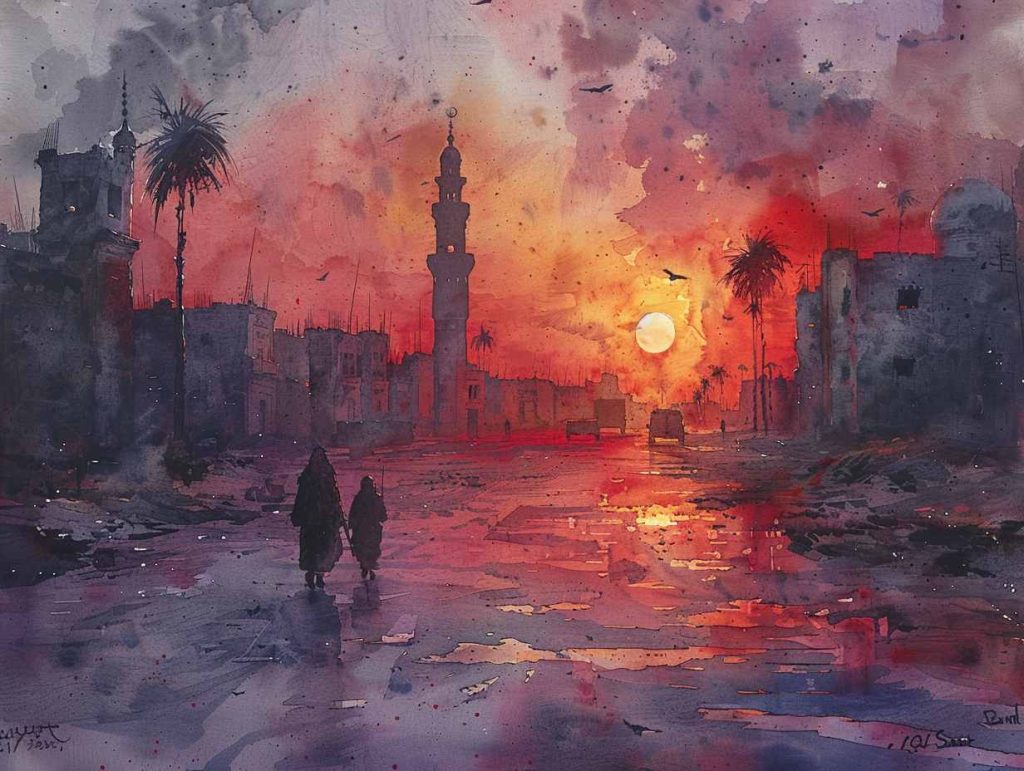
Inspiration Behind
I was inspired by the stark contrast between the devastation caused by war and the indomitable will of the human spirit to rise from the ashes. The imagery of ashen skies and scarred fields came to me as symbols of loss, while the mention of rebuilding and a new start reflects my belief in resilience. The silence in the poem represents the void left by destruction, but also the space for new beginnings. The journey from darkness to light, though fraught with challenges, embodies the essence of hope that guides us through the aftermath of conflict.
Echoes in the Void
Ruins whisper, skies turned gray,
Peace's dreams, now swept away.
Shadows cast by fire's light,
Day turned to an endless night.
Tears fall on the barren ground,
Silent screams, the only sound.
Memories of war's cruel bite,
Haunting the soul, blurring sight.
Bridges burned, no return,
Lessons harsh, yet unlearn,
Hearts entwined in sorrow's chain,
Hoping for rain, to cleanse the pain.
From ashes, a timid hope,
On devastation's slippery slope.
Rebuild, restore, with weary hands,
In these divided, shattered lands.
War's echo, a somber song,
Teaching us where we went wrong.
In its wake, we find our way,
From night's dark, to dawn's day.
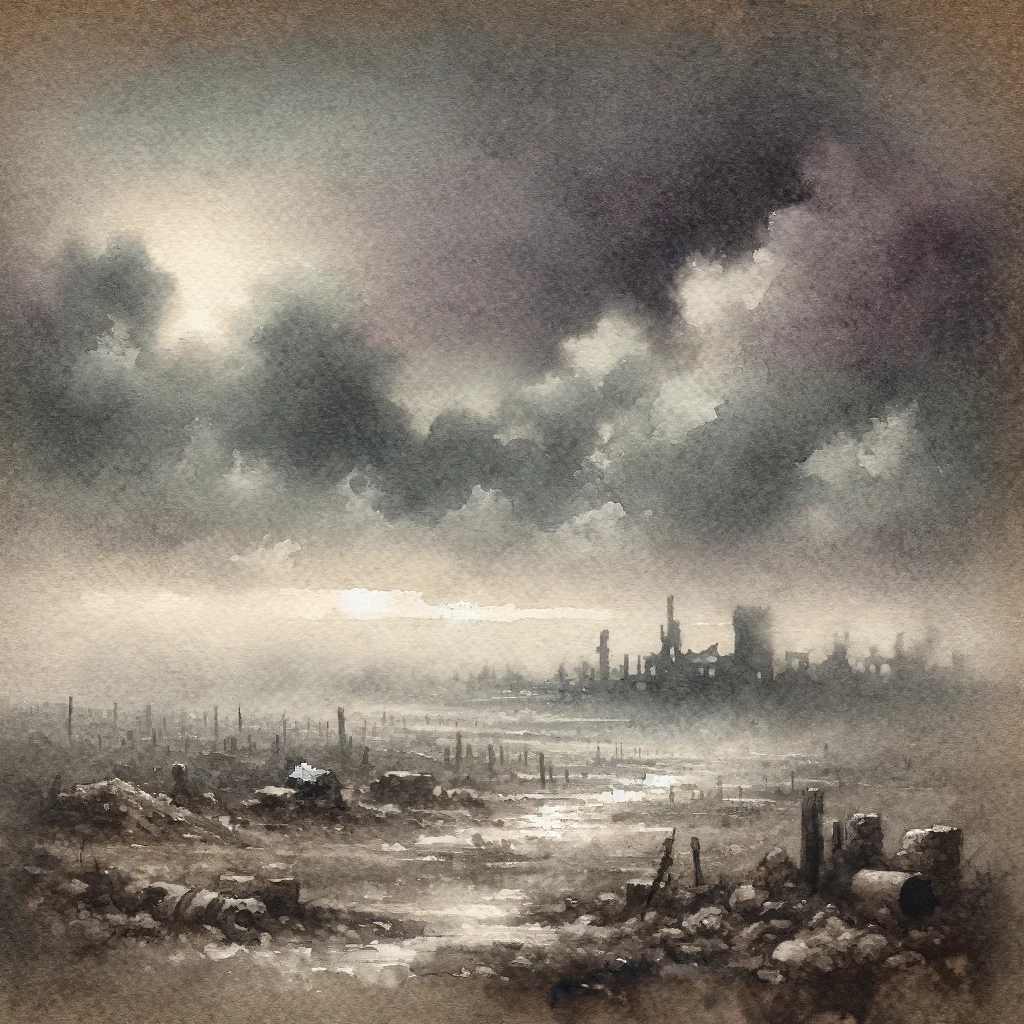
Meaning
This poem captures the desolation and aftermath of war, emphasizing the profound impact on both the landscape and the human spirit. It reflects on the loss and devastation that war brings, not only physically but emotionally and psychologically. However, amidst the ruins and sorrow, there emerges a fragile hope—a determination to rebuild and restore what was lost. The poem speaks to the resilience of the human condition, acknowledging the pain and scars left by conflict while highlighting the innate drive towards healing and reconciliation.
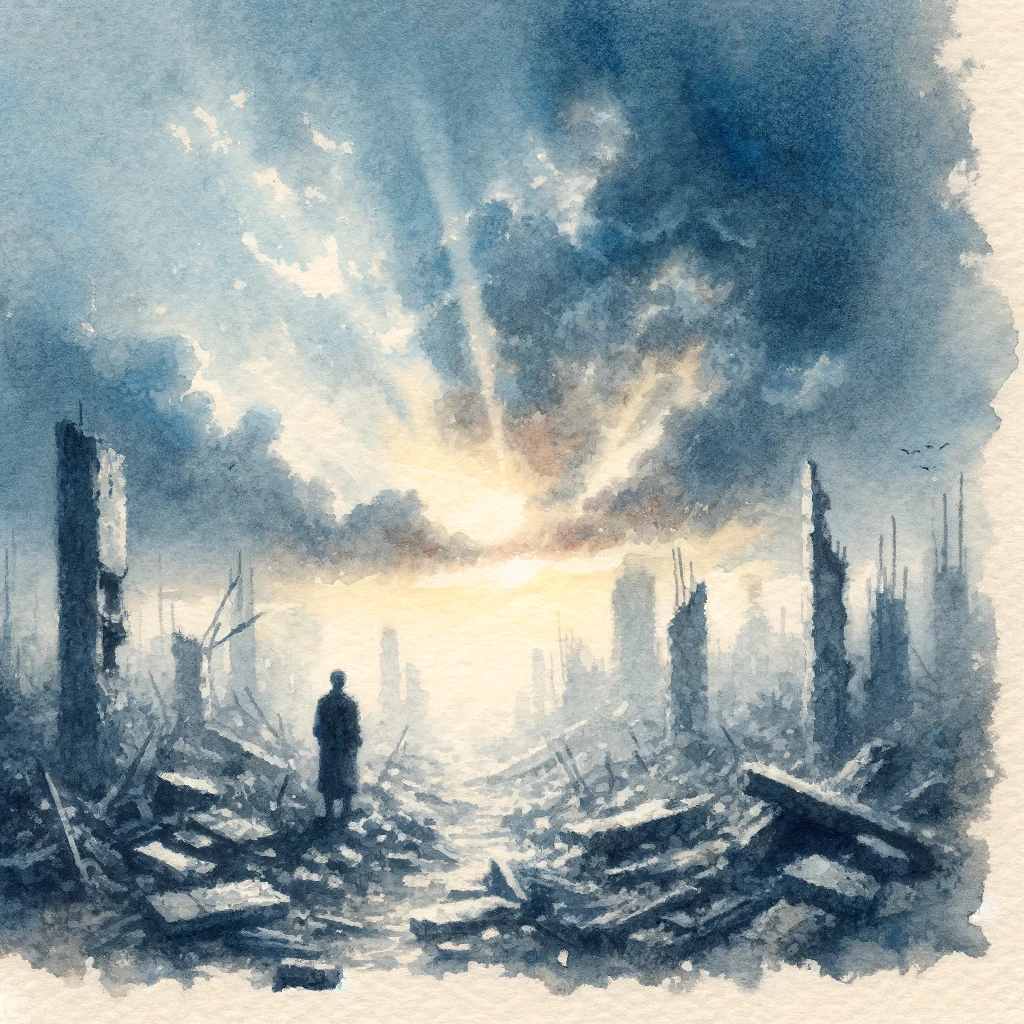
Inspiration Behind
I was moved by the concept of resilience in the face of overwhelming destruction. The imagery of ruins and ashes symbolizes the immediate aftermath of conflict, yet the notion of rebuilding represents the enduring strength of humanity. I wanted to convey that even in the darkest times, there is a spark that compels us to move forward, to repair, and to find unity in our shared experiences of loss. The poem’s progression from despair to a cautious optimism reflects my belief in the potential for renewal, no matter how daunting the challenge.
Shadows Over Fields
Barren lands, once lush and green,
Now silent, where life had been.
Hollow eyes, empty hands,
Across the scarred, forsaken lands.
War's cruel march, famine's wake,
Leave behind a haunting ache.
Empty bowls, dried wells,
Tales of sorrow, no tongue tells.
Skies of gray, over fields of despair,
Hunger's grip, pervasive, everywhere.
Shadows stretch, long and cold,
Over stories, untold, of the bold.
In the midst of desolation, a plea,
For a drop of mercy, a seed free.
Hope, a flicker, fragile, slight,
In the endless dance of day and night.
Yet, from the depths, a resilient call,
Unity and strength, to overcome it all.
From war and famine, a lesson learned,
In the ashes, a future, earnestly yearned.
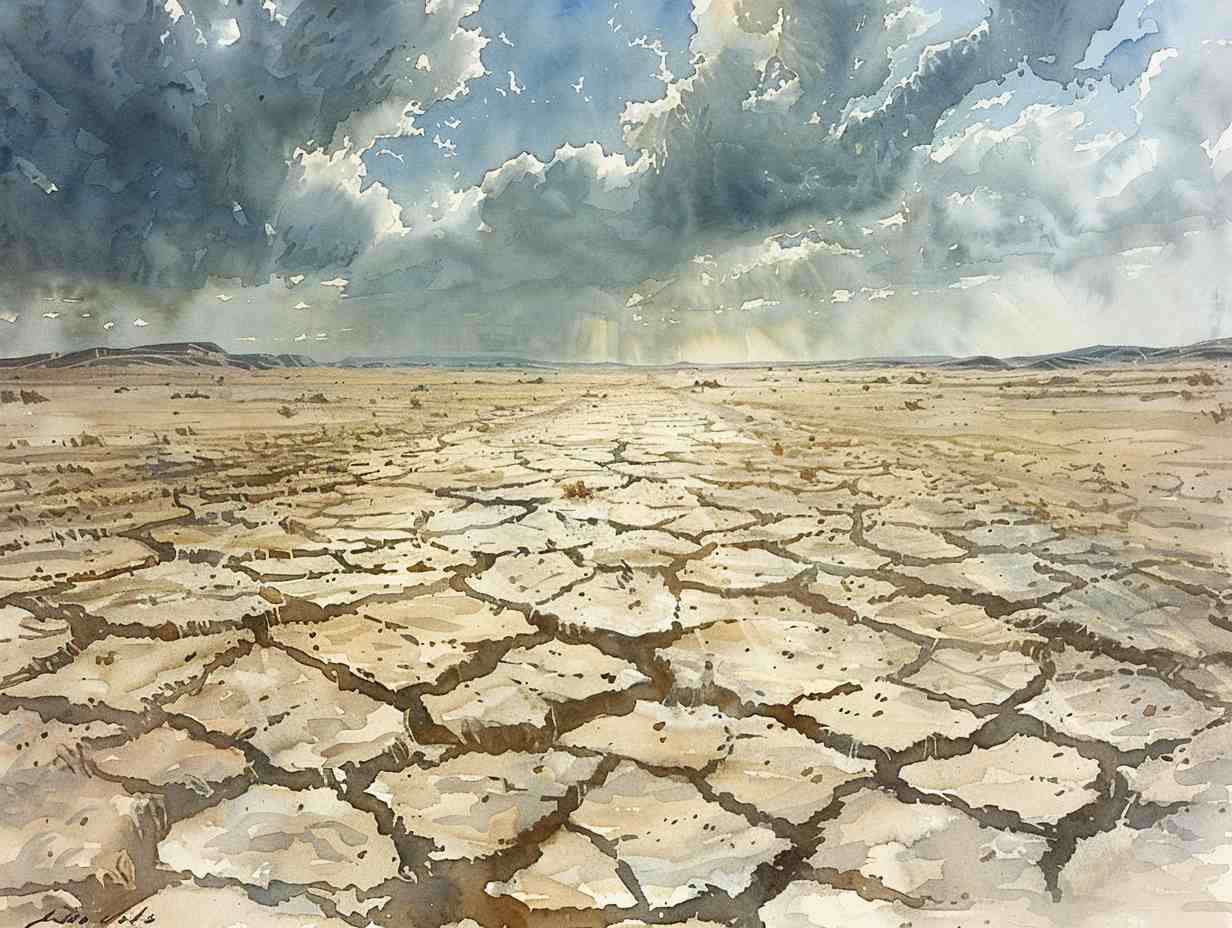
Meaning
This poem looks into the devastating effects of war and famine on the land and its people. It paints a picture of a world stripped of its vitality, where the earth is barren and the inhabitants are caught in the grip of hunger and loss. Despite the bleak circumstances, there remains a glimmer of hope—a desire for compassion, regeneration, and unity. The narrative suggests that even in the face of overwhelming adversity, the human spirit’s resilience and the collective will to rebuild can pave the way for a new beginning.
Inspiration Behind
I was inspired by the stark realities faced by those living in war-torn and famine-stricken regions. The imagery of barren lands and hollow eyes serves to highlight the contrast between a once abundant existence and the current state of deprivation. My intention was to evoke a sense of empathy and awareness, while also acknowledging the indomitable will to survive and the potential for rebirth amidst ruins. The poem aims to capture both the despair and the enduring hope that define the human condition when faced with such dire challenges.
End Words
These Poems About War and Destruction and their accompanying visuals navigate the complex terrain of war’s aftermath, underscoring the resilience that emerges amidst desolation. They subtly explore themes of loss, despair, and the eventual, quiet resurgence of hope and renewal. Through concise language and vivid imagery, these works offer a reflection on the human spirit’s capacity to confront adversity, rebuild, and find solace in unity and shared purpose. The narrative arc from destruction to reconstruction serves as a testament to the enduring strength and adaptability inherent in humanity.



